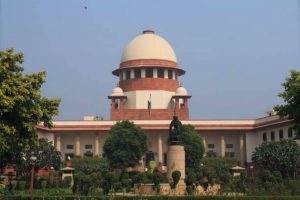The 11th United Nations Analytical Support and Sanctions Monitoring Team (MT) report issued recently has caused ripples in Pakistan as well as among Pakistan-watchers and nations affected by Pakistan-sponsored terror. The observations in the report are unsettling for Pakistan.
The report which highlights the fact that there are still 6,500 Pakistani nationals present and operating in Afghanistan actively aiding foreign terrorists, became public on June 5. The MT report further states that a large number of Jaish e Mohammad (JeM) , Lashkar e Toiba (LeT) terrorists and their affiliates are currently active on Afghan soil fomenting terror.
More interestingly, the report which is going viral, says that Prime Minister Imran Khan of Pakistan had admitted only last year that there were nearly 30,000 to 40,000 terrorists within Pakistan. The mint fresh report only confirms this Imran statement; in other words, it reiterates Pakistan’s own admission on terror made by none other than its Prime Minister.
The Pakistan Foreign Office, however, was quick to challenge this report as it shows Pakistan in a very dim light exposing its dismal failure to contain terror. As the report principally mentions Afghanistan, the Afghan government’s Directorate General of Communications has quickly reacted (June 5) to the findings of the report and outrightly rejected Pakistani allegations that a third party (possibly insinuating India) is trying to destabilise Pakistan.
The reaction is bold and forthright and rejects all Pakistani charges about the complicity of the so called third party. Instead, the official communication states that the Tehrik e Taliban Pakistan (TTP) and its splinter terror groups are tainted with the blood of Afghans. The Afghan statement further says that they are formally designated as terrorist organisations in the National Threat Assessment and National Security Policy of Afghanistan.
It says that the TTP has aligned itself since its emergence with those fighting the Afghan government and the people. Importantly, according to the Afghan government, over the past years a significant number of TTP leaders and operatives have been either taken out in the battle ground, captured or brought to justice in Afghanistan.
The elimination of a large number of key TTP leaders and foreign fighters belonging to TTP, JeM, LeT, ISIS-K and other transnational groups of terrorists are testament to the resolve of the Afghan government to fight terror, the statement says. Encouraged by the recent UN terror report exposing Pakistan of its terror- linked activities, Afghanistan has underscored that in the interest of transparency and regional cooperation, Afghanistan has provided access to the concerned partner countries.
A lasting Afghan peace will deny all foreign fighters and terror organisations any symbiotic relationship that they may have established. Afghanistan also addressed the concerns of human trafficking, gun and human smuggling as part of tackling any terror activity. In light of this, Afghanistan expects that partner countries in the region will support the Afghan peace process to address the menace of global terrorism.
The candid reaction by Afghanistan in the wake of the recently released UN (MT) report is a bold step and is clearly a rebuff to Pakistan which cannot simply abdicate its accountability for abetting terror in Afghanistan and for opposing any partner country’s effort to help Afghanistan in its quest for lasting peace.
The message is loud and clear and in sync with the UN outcome, mainly pointing out that terrorism, still flourishing in Pakistan with state support, is largely thought to be designed to subvert Afghanistan’s peace plans . Pakistan’s woes don’t end here. An American lady blogger, Cynthia Ritchie in a social media post, alleged that she was violated by a Pakistani People’s Party (PPP) leader in 2011 when the party was in power in Pakistan.
She has further levelled charges against erstwhile Prime Minister Yousuf Reza Gilani and health minister Makhdoom Shahbuddin of physically manhandling her. Such strong charges against Pakistani leaders at this juncture when the country is battling Covid-19 and terror charges have been made, are indeed a slur on the polity.
Her allegations are being taken seriously as she didn’t even spare Benazir in her comments. PPP in particular is upset with these allegations, fearing the ruling PTI of Imran Khan will take advantage of these developments adding more turmoil to the already turbulent political happenings in the country.
The Deep State, in the meantime, is intently watching the situation and will doubtless step in as and when an opportunity arises.
(The writer, a retired IPS officer, is a security analyst and an independent columnist on geopolitical issues. The views expressed are personal)











